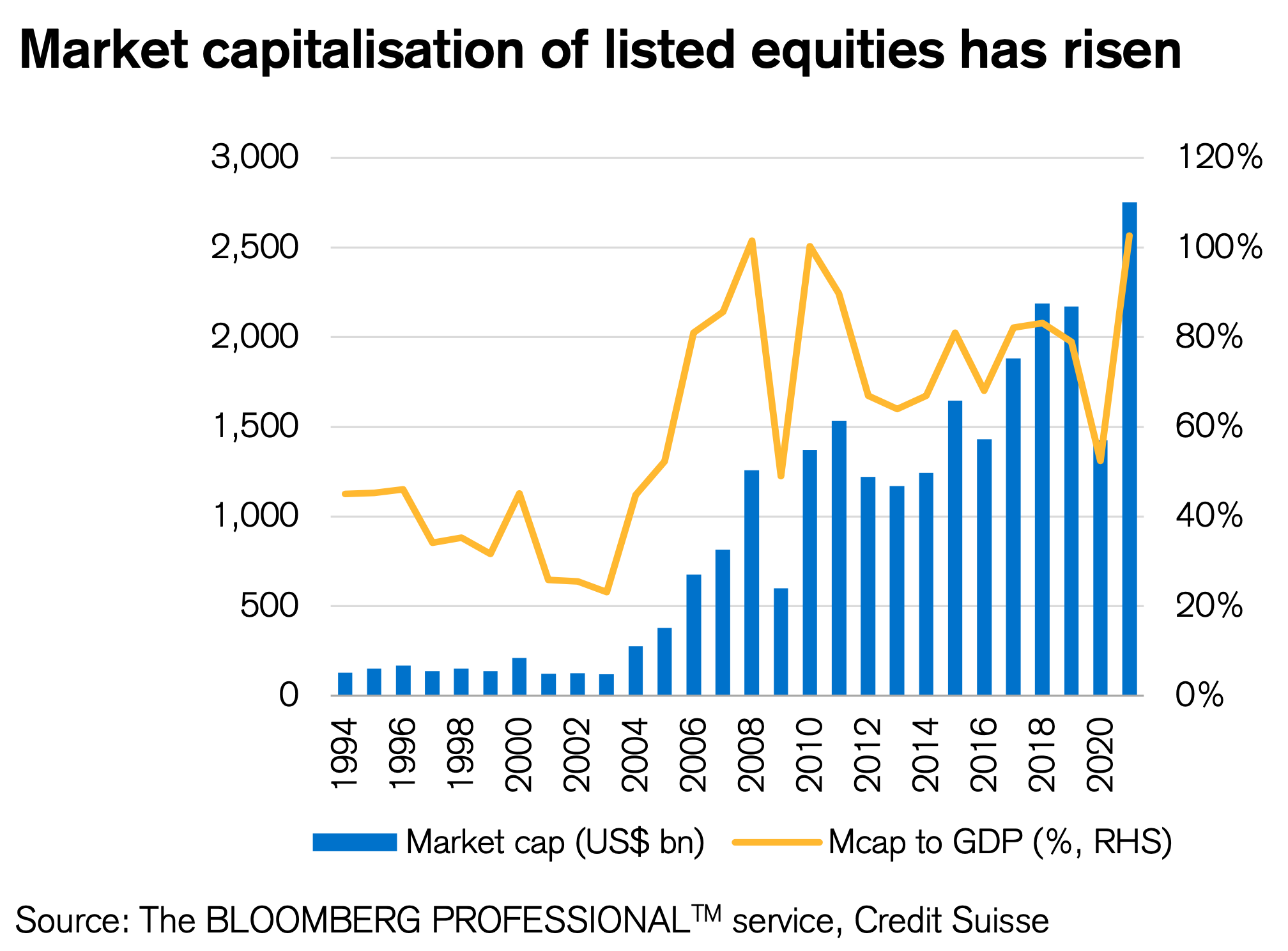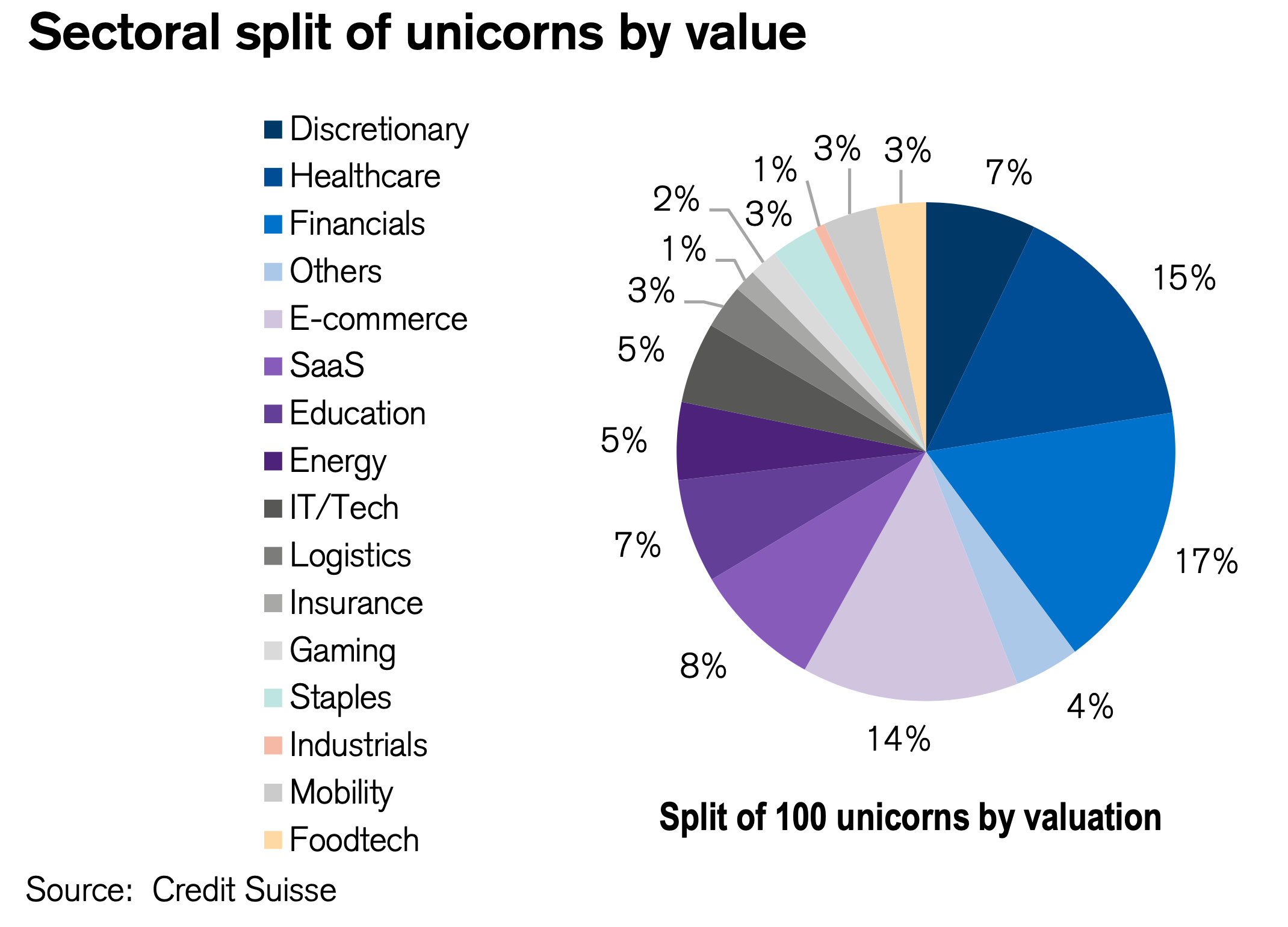The next unicorns are hiding where you least expect
In business, a unicorn is a privately held startup company valued at over $1 billion. The term was coined in 2013 to represent the statistical rarity of such successful ventures. In 2021, these mythical beasts are turning up where you least expect.
So for now, at least, you can forget Silicon Valley.
Bangalore, India, is where you want to go to find the next “100 unicorns” set to dominate e-commerce, fintech, education technology and other themes that underpin the subcontinent's untapped potential.
India ranks third behind the US and China in terms of the number of tech unicorns, which are collectively worth around US$90 billion. The number of India-listed companies with market caps north of US$1 billion has risen to 336 companies from 178 in 2010 and just 72 in 2005.

And with many of the companies still privately-owned, the outlook for investment opportunities is set to expand further still, said Credit Suisse’s Neelkanth Mishra and Ashish Gupta, India equities strategist and head of Asia financial securities at the recent Credit Suisse Asian Investment Conference.
Why SaaS is where the unicorns graze
The pair discussed why they regard India as ripe for innovation investment, referring to a Credit Suisse study of some 50,000 unlisted companies. This uncovered around 100 unicorns, primarily within the fintech and software-as-as-service (SaaS) sectors of the broader technology universe.
“SaaS is the area where a lot of meaningful changes should happen,” said Mishra. This is driven by India’s transition from service-based technology businesses to firms that are more product-based. It’s also been fostered by the rise of cloud computing and the fact that companies no longer need to have on-premise software and hardware.
And as Mishra explains, “many of these companies started almost accidentally, some of the SaaS startups stumbled into these businesses and have now grown into very cash-rich businesses.”
“What we’ve found are the tallest trees in what is actually quite a dense forest,” he said.
“For the last decade or so, we’ve been highlighting what we’ve called the ‘silent transformation’ of India, coming from better phone penetration including smartphones, road network improvements, improved electrification and much deeper financial penetration,” said Mishra.
E-commerce is one area that emerged in the Credit Suisse study, which was largely expected. But some of the more surprising growth areas are in SaaS, gaming, logistics, biotech and pharmaceuticals.
“Some of these companies are not just creating wealth in the sector itself, but also acting as public goods,” said Mishra.

“And the fact that credit is starting to flow will mean the creation of many more businesses, which will then create their own pyramid of wealth creation.”
Digital payments is one area that has seen huge growth, expanding more than ten-fold over the past five years. With an annual payment run-rate of US$450 billion, digital payments now comprise around 30% of all retail transactions in India.
And as we’ve seen in other economies around the world, the uptake of the goods and services of these technology firms has been accelerated by the COVID pandemic. An analysis of credit card expenditures in India revealed that online transactions surged almost 10% in nine months last year, now accounting for around 53% of all transactions. It also showed that there is a marked shift in consumer spending from offline to online.
What does this mean for Australian investors?
For now, the opportunities are largely being snapped up by institutions, with managed funds or ETFs still the most popular way of getting exposure. But Mishra revealed several Australian superannuation funds have been pitching to invest.
“And now cross-border investment vehicles are also starting to emerge, with some Indian SPACs targeting local startups,” Mishra said.
“The fact these channels haven’t opened up yet is perhaps another reason to stay positive, because you could see the virtuous cycle getting extended further.”
He also highlighted the prominence of private structures among Indian tech startups. “As of now, the number of fintechs in public markets are limited, but that is also just part of the lifecycle.”
“We expect that to start changing and expect more will come to public markets this year and in the years ahead.”
Not already a Livewire member?
Sign up today to get free access to investment ideas and strategies from Australia’s leading investors.
1 topic

